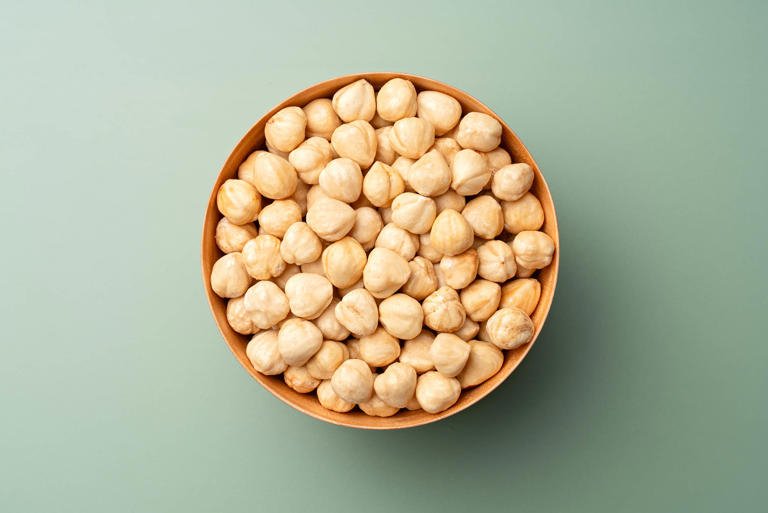The Power Of Zinc: 12 Dietitian-Approved Foods To Boost Your Immune System

In the quest for a robust immune system, few nutrients wield as much influence as zinc. This essential trace mineral is a cornerstone of cellular function, acting as a critical cofactor in over 300 enzymatic reactions within the body. While often overshadowed by the likes of Vitamin C and D, zinc is, in fact, a linchpin of immune defense, a guardian of metabolic health, and a catalyst for growth and repair. Understanding how to harness the power of zinc through your diet is a proactive step toward sustained well-being.
This article delves into the science behind zinc's immune-boosting prowess, explores a curated list of 12 dietitian-approved food sources, and provides practical guidance on integrating them into your daily meals.
How and Why: The Zinc-Immunity Connection
To appreciate zinc's role, we must look at the cellular level. Our immune system is a complex network of cells and proteins designed to defend against pathogens. Zinc is fundamental to its proper function in several key ways:
-
Cellular Proliferation and Communication: Zinc is crucial for the rapid division and specialization of immune cells, particularly lymphocytes (T-cells and B-cells). When a pathogen invades, your body must mount a swift response, generating an army of these specialized cells. Without adequate zinc, this production line slows down, leaving you more vulnerable.
-
Antioxidant and Anti-inflammatory Agent: Zinc acts as a powerful antioxidant, helping to neutralize free radicals that can cause cellular damage and chronic inflammation. It also plays a role in curbing an overactive immune response, which is at the root of many autoimmune conditions and can cause excessive tissue damage during an infection.
-
Physical Barrier Support: Zinc is vital for maintaining the integrity of our physical barriers, including the skin and the lining of our respiratory and gastrointestinal tracts. A strong epithelial barrier is the first line of defense, preventing pathogens from entering the body in the first place.
-
Apoptosis Regulation: This mineral helps regulate programmed cell death (apoptosis), a critical process for eliminating old, damaged, or infected cells, making room for new, healthy ones.
A zinc deficiency, even a mild one, can lead to a compromised immune response, increased susceptibility to infections, and a prolonged recovery time. The body cannot produce or store zinc, making consistent daily intake through diet absolutely essential.
The Benefits: More Than Just Immunity
While boosting the immune system is a primary benefit, adequate zinc intake supports overall health in remarkable ways:
-
Wound Healing: Zinc is critical for collagen synthesis, immune function, and inflammatory response, all of which are necessary for proper wound repair.
-
DNA Synthesis and Cell Growth: It is indispensable for growth and development during childhood, adolescence, and pregnancy.
-
Sensory Health: Zinc is highly concentrated in the retina and is essential for the proper function of enzymes that support night vision and taste perception.
-
Metabolic Function: It plays a role in insulin production and action, influencing blood sugar control.
12 Dietitian-Approved Zinc Powerhouses
The Recommended Dietary Allowance (RDA) for zinc is 11 mg for adult men and 8 mg for adult women. The following foods are excellent, bioavailable sources, meaning your body can efficiently absorb and utilize the zinc they contain.
-
Oysters: The undisputed champion. Just three medium oysters can provide over 200% of the daily value (DV) for zinc. They offer the most concentrated source, making them a powerhouse for immune support.
-
Pumpkin Seeds: A top plant-based choice. A single ounce (about a handful) provides around 2.2 mg of zinc. They are also rich in magnesium and healthy fats. Sprinkle them on salads, yogurt, or enjoy them as a snack.
-
Lentils and Chickpeas: These legumes are nutritional powerhouses. One cup of cooked lentils provides about 2.5 mg of zinc. They are also an excellent source of fiber, protein, and folate, supporting gut health—another pillar of immunity.
-
Grass-Fed Beef: A 3-ounce serving of lean beef offers about 5.3 mg of highly bioavailable zinc. It also provides heme iron and vitamin B12. Opt for lean cuts to maximize benefits.
-
Hemp Seeds: A versatile seed packed with nutrition. Three tablespoons contain nearly 3 mg of zinc. They can be easily blended into smoothies, sprinkled over oatmeal, or mixed into baked goods.
-
Cashews: A delicious and convenient snack. A one-ounce serving provides around 1.6 mg of zinc. Their creamy texture also makes them a great base for dairy-free sauces and creams.
-
Plain Greek Yogurt: Beyond probiotics, a 7-ounce serving of plain, low-fat Greek yogurt contains about 1.5 mg of zinc. It’s a perfect two-for-one, supporting gut and immune health simultaneously.
-
Chicken (Dark Meat): While all chicken contains zinc, dark meat (thighs and drumsticks) is a richer source than white meat. A 3-ounce serving provides approximately 2.4 mg.
-
Spinach: Cooked spinach is a good vegetable source, with one cup offering about 1.4 mg of zinc. Cooking helps break down oxalic acid, which can inhibit zinc absorption, making the mineral more available.
-
Mushrooms (Shiitake and Cremini): Certain mushrooms are a surprising source of zinc. One cup of cooked shiitake mushrooms provides about 1 mg, along with other immune-modulating compounds like beta-glucans.
-
Whole Grains (Oats and Quinoa): A cup of cooked quinoa provides 2 mg of zinc, while a cup of cooked oats offers about 1.3 mg. While they contain phytates that can slightly reduce absorption, cooking and soaking can help mitigate this.
-
Fortified Cereals: Many whole-grain and fortified cereals are an easy and accessible way to meet your zinc needs. Always check the nutrition label, as some can provide up to 100% of the DV per serving.
Maximizing Your Zinc Absorption
For plant-based sources, the presence of phytates can bind to zinc and reduce its absorption. You can improve bioavailability by:
-
Soaking beans, grains, and seeds overnight.
-
Sprouting them before consumption.
-
Pairing with allium vegetables (like garlic and onions), which can enhance mineral absorption.
-
Consuming a varied diet that includes both animal and plant sources to ensure a consistent supply.
Conclusion
Zinc is a non-negotiable ally in the mission to maintain a resilient and responsive immune system. Its multifaceted role in cellular function, from the initial barrier defense to the complex orchestration of immune cells, underscores its critical importance. By consciously incorporating a variety of these 12 dietitian-approved zinc-rich foods into a balanced diet, you empower your body’s natural defenses from the inside out. This proactive nutritional strategy, combined with other pillars of health like sleep, exercise, and stress management, forms a formidable foundation for long-term vitality and resilience.
Frequently Asked Questions (FAQ)
Q1: Can I take a zinc supplement instead of focusing on food?
A: While supplements can be beneficial for individuals with diagnosed deficiencies, certain medical conditions, or specific dietary restrictions (like vegans), they are not a substitute for a nutrient-rich diet. Whole foods provide a complex matrix of vitamins, minerals, fiber, and antioxidants that work synergistically, which a single supplement cannot replicate. Always consult with a healthcare provider or registered dietitian before starting any new supplement, as excessive zinc can cause toxicity and interfere with the absorption of other minerals like copper.
Q2: What are the signs of a zinc deficiency?
A: Common signs can include frequent infections and illnesses, slow wound healing, hair loss, loss of appetite, taste or smell disturbances, and skin lesions like dermatitis. However, these symptoms can be non-specific and overlap with other conditions. A blood test from a healthcare professional is required for a definitive diagnosis.
Q3: Are plant-based sources of zinc as good as animal-based ones?
A: Animal-based sources (like oysters, beef, and poultry) provide zinc in a form (heme) that is generally more bioavailable than the non-heme zinc found in plants. However, plant-based sources are still excellent and vital for those on vegetarian or vegan diets. By employing strategies like soaking, sprouting, and consuming a variety of plant foods, you can significantly improve your absorption of zinc from these sources.
Q4: Can you get too much zinc from food?
A: It is very rare to consume toxic levels of zinc from food alone. The body is adept at regulating absorption from dietary sources. Toxicity is almost always associated with over-supplementation. The Tolerable Upper Intake Level (UL) for adults is 40 mg per day from all sources.
Q5: Is it true that zinc lozenges can shorten a cold?
A: Some research suggests that taking zinc lozenges within 24 hours of the onset of cold symptoms may reduce the duration and severity of the cold, potentially by inhibiting the replication of the rhinovirus in the throat. However, the evidence is mixed, and the effect can vary based on the formulation and dosage. It is not a guaranteed cure, and focusing on consistent daily intake for prevention is a more reliable strategy.







